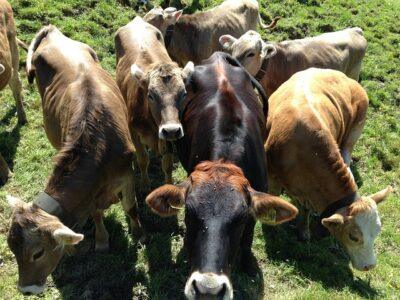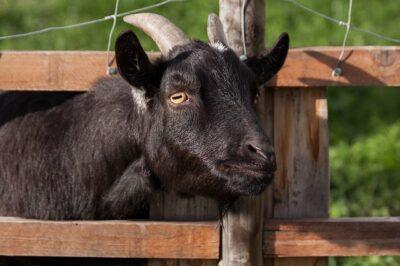Many small farmers and homesteaders use natural wormers for livestock in place of chemical alternatives.
Let’s first talk about why you might consider an alternative to chemical wormers. Chemical wormers are easily obtained, easily administered and touted as the answer to parasite infestations.
However, as with most chemical concoctions that can be used on the homestead, they come with some possible side-effects that you may want to consider.
One of the most prevalent: Parasites develop resistance to chemical parasiticides. That means eventually they won’t be effective on your livestock and you’ll need to change wormers.
Another consideration is the residual chemicals that can be deposited in your soil when the wormer passes through your stock.
If you are raising livestock for meat consumption you should consider the residual chemicals that may remain in your meat. If you sell your products to others, many of today’s consumers do not want to risk chemical residues in their meat.
If you want to avoid the possibility of your wormer not working and the residual complications associated with chemical wormers, you might want to consider some of these alternatives.
1. Herbal wormers
There are many pre-formulated herbal wormers available commercially for different types of livestock. You can also research and formulate your own. Be aware that herbs are powerful and that caution should be used when mixing and dispensing to livestock.
2. Diatomaceous earth (DE)
Food grade diatomaceous earth is approved as an anti-caking agent in animal feeds. Make certain you obtain food grade, as other grades of diatomaceous earth are poisonous to animals or humans.
Food Grade Diatomaceous Earth: The Best All-Natural Wormer For Your Livestock
For the best results, use DE continuously as a feed supplement.
3. Essential oils
Many small farmers have successfully used essential oils as an alternative worming protocol. Some of these oils should be diluted with a carrier oil such as coconut or olive oil before adding them. Some of the most common essential oils are clove, nutmeg, fennel, vetiver cumin, anise, tea tree, Idaho tansy, thyme and laurel leaf.
4. Garlic
Fresh garlic or garlic powder can be used as a wormer. Introduce small amounts of the garlic over several days as to get the stock accustomed to it before increasing the amount over time. Garlic acts quickly on existing adult worms.
The best way to keep your livestock free of parasites is to use a regularly scheduled worming routine and practice good prevention methods.
Avoid keeping animals in close quarters for long periods of time. A good prevention method for keeping parasites to a minimum is rotating your stock to clean pastures and shelters on a regular basis.
To test for parasite levels in your stock it is best to have a veterinarian perform a fecal examination test (or you can learn to do these yourself).
As with any alternative health protocol, do your research and consult with your veterinarian before starting any treatment protocol for parasites.
Do you use alternative wormers? What advice would you add? Share it in the section below:
Harness The Power Of Nature’s Most Remarkable Healer: Vinegar
 Off The Grid News Better Ideas For Off The Grid Living
Off The Grid News Better Ideas For Off The Grid Living






